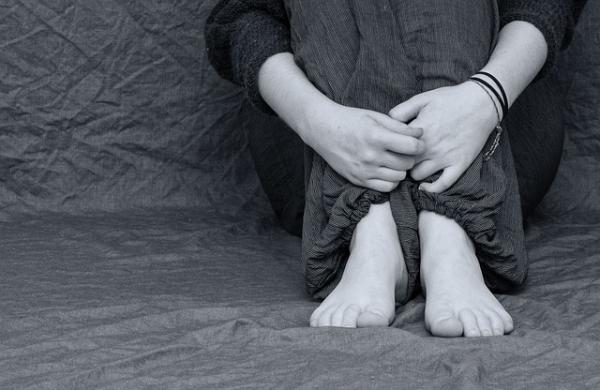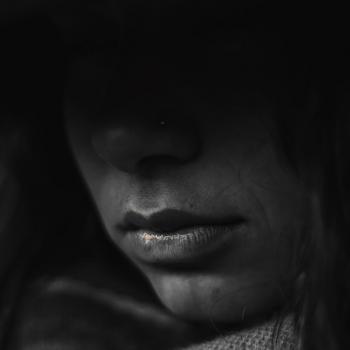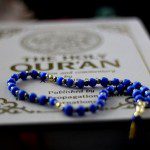Failure. I could feel the word slide over me, burning the skin on my arms, chilling the blood in my veins, crushing the place where I could have sworn my heart used to be. It was like a living entity slithering along my body, injecting its venom into my body until all I could hear in my head was the word repeating like an evil mantra.
Worthless. When failure took a break, worthless took its place. It was softer in its condemnation, almost wheedling in its repetition. But once the word took hold of my consciousness, all I could see was a grainy film of every misstep, every unfortunate accident in my life playing on loop.
I was a mother whose body had just failed to hold my third child, forcing him cruelly into the world 23 weeks into my pregnancy. I was a wife whose husband worked 170 miles away in New York City – surely a sign that I was terrible to live with as a woman and a spouse. I was a daughter whose father had struggled with schizophrenia my whole life and I was now spiraling myself into an abyss so deep that I feared it was only a matter of time before my own psychosis would take hold. I was a friend who had failed miserably to save one of my best friends as he traveled down a dark path that culminated in a life-long sentence behind bars.
And, lastly and most importantly I thought, I was a Muslim who God had turned away from. After all, hadn’t my relative told me that it was my fault that my daughter had been diagnosed with autism? Wasn’t my newborn struggling to survive in the NICU down the hall another glaring example that my prayers were worthless before God? The thoughts were relentless as they hammered against my skull, the disjointed images of my many failings flashing before my eyes.
End it. The words came to me in the hospital room as I recuperated from the emergency c-section I had just undergone. And with those two words, the screaming cacophony in my head faded away. The burning on my skin ceased, almost like a balm had been rubbed over all of my wounds. It was so simple, I thought in that moment. And I breathed deep before falling asleep.
I woke up a few hours later, horrified that I had even allowed myself to indulge in the thought. It was a sick fantasy, I said. Suicide is forbidden in Islam, I yelled at myself. Allah doesn’t burden a soul beyond that it can bear, the Quran says. I was strong, that’s why God tested me so much, I reasoned with myself. He gifted you with strength, be grateful for that.
But the thoughts didn’t go away. They followed me as I left the hospital and went home to mother my two other children. They haunted me as I returned to work, plastering a bright smile on my face, laughing with my students, hiding the pain I was in. Eventually I stopped trying to fight them. Instead, I lay my one-pound son against my chest in the NICU and willed him to live, even as my mind contemplated what my family’s life would be like when I was gone.
Muslims aren’t supposed to have these thoughts. At least, that’s what we’re told. Such thoughts are the work of the devil. Pray more, fear God for even thinking of throwing away His gift. But depression knows no religion and has no fear. I realized that during those dark initial days after my third child was born and for six months after, as I silently walked around preparing for my inevitable death. Would it hurt? Who would find me? How could I make sure that everyone was taken care of after I was gone?
Looking back at that time, almost four years later, it never ceases to amaze me how well I hid my severe postpartum depression and suicidal thoughts. No one knew, not even the people closest to me. I went through life on autopilot, fulfilling all of my duties as a mother, a wife and a professor without missing a beat. So many people told me that I was an inspiration for showing such strength despite everything I had been through. They praised me for my ability to shoulder all my responsibilities and never stop smiling. I accepted their compliments graciously but, on the inside, I was confused. I was preparing, not thriving. Couldn’t they see how broken I was? Didn’t they realize that I was only functioning so well because I was planning to trade in the pain for an eternity of silence and darkness?
I was trying to meticulously handle all of my responsibilities so that I wouldn’t feel guilt when I closed my eyes for the last time. As I slowly weaned my baby off of the external oxygen machine he had been on since birth, I saw it, in part, as preparing him to breathe on his own so that he could live without me. When I graded papers and met with my students, I did so with the hope that something I said to them would resonate in their lives after I was gone. And when I hugged my kids or my husband, in my mind, I hoped that they would remember how much I loved them.
I can’t pinpoint exactly when the thoughts starting fading away. There was no a-ha moment when everything was suddenly clear, and I was happy again. There were minor moments of genuine light that began to seep into my life. My baby’s throaty laugh when I kissed his tummy brought a smile to my face. My heart suddenly swelled when my middle son wrapped his arms around me one morning as I got him ready for school. And my daughter’s voice, clear and melodic, as she sang along to a song in the car, suddenly began to drown out my darker thoughts.
Those random moments began to knit together some of the seeping tears in my soul, and I realized I needed help. I sought therapy and began to open up more about my pain. I didn’t tell anyone, at the time, about the more insidious thoughts that had plagued me for months. I feared that voicing those thoughts would somehow make them more real. I feared people would now consider me weak and selfish for wanting to end it all. So, I chose not to talk about it. To anyone.
This Ramadan, I decided that I was going to work on myself. I wanted to start by being more truthful and open about my shortcomings and weaknesses. I wanted to lose some of the armor that I wear every day that convinces people that I can handle anything. I didn’t expect to talk about suicide. But the recent deaths of Kate Spade and Anthony Bourdain has brought that conversation to the forefront, and I realized this was the hardest truth I needed to share this Ramadan.
As a Muslim, there is one line in the Quran that has always resonated with me: “Verily, with hardship there is relief.” In the throes of depression, I had forgotten those words. At that time, I could only hear self-condemnation about my failures and worthlessness. But that was then. Today, those words from God have new meaning for me. And I’m glad that they’ve become the new mantra in my head.














